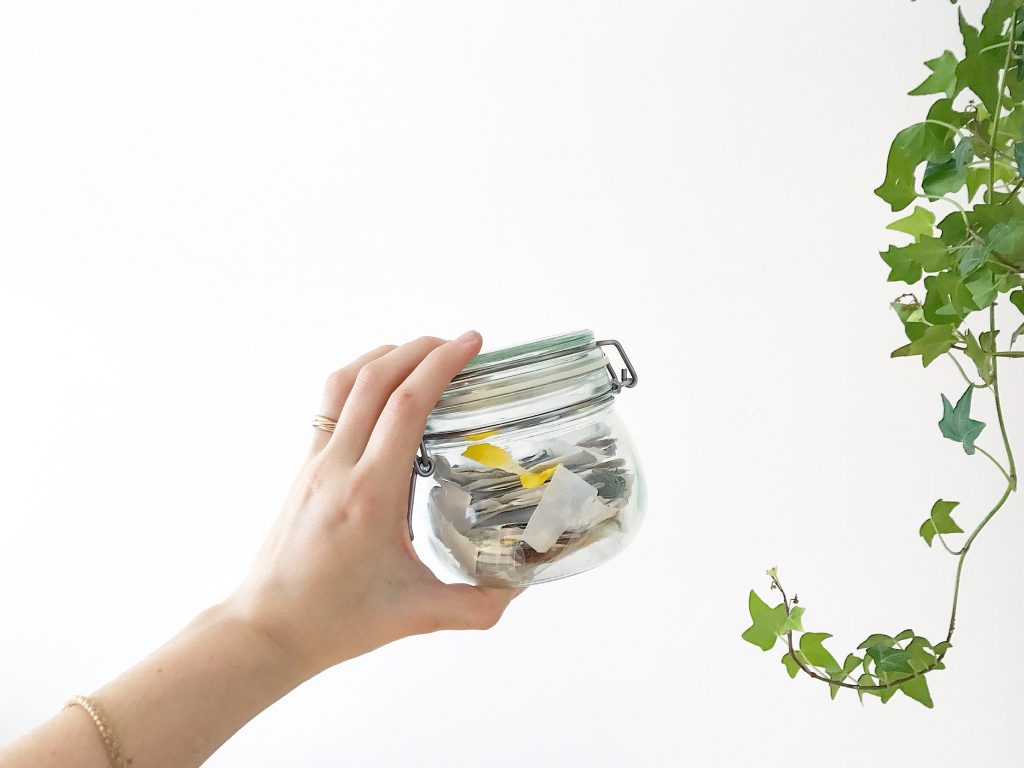Lauren Singer, the woman behind Trash is for Tossers, released a video earlier this year showing the world all of her trash from the last four years. Why would she do that? Well, because it all fits into a single mason jar! With Zero Waste Week upon us, it might seem sensible to look to bloggers like Singer for some inspiration.
The blogger and youtube star aims to live a waste-free lifestyle and so opts for packaging free items whenever she can, when she has to buy packaging she makes sure it’s recyclable and compostable.
It might sound like a difficult feat, especially if you don’t live in the countryside or have your own garden, but Singer actually resides in an apartment in Brooklyn and still manages to abstain from creating waste.
Singer isn’t the only Zero Waste advocate out there, many other bloggers and vloggers also promote a zero waste lifestyle. After all there are a lot of reasons to do this. It’s predicted that by 2050 our oceans will contain more plastic than they will do fish! This is seriously damaging to ecosystems. There are also many non-recyclable plastics which can take up to 1000 years to decompose!
One blogger similar to Singer is Shia, founder of Wasteland Rebel. Shia and her husband felt like they were on a pretty green path, having ditched their car to use only public transport and bicycles. But when they discovered that they could in fact live a waste free life they decided to see what they could do to improve their green status even more.

Shia also mentions in her blog that her and her husband have gone vegan. But what does veganism have to do with environmentalism?
Presumably most Zero Waste advocates are choosing that lifestyle in order to combat environmental problems and be part of creating more sustainable solutions to our current society’s tendency to buy single use items. Although Singer’s ability to fit all of her four year’s worth of rubbish into a mason jar is impressive, whilst she fails to follow a vegan diet and lifestyle, she may still be causing a lot of harm to the environment.
Most people start with their food when they are considering a zero waste lifestyle. They try and cut down on packaging and buy things that are recyclable. A lot of people even choose to shop at local farmers markets in order to reduce the miles that their food has travelled. However, the production of food actually accounts for 80 percent of it’s overall CO2e emissions. Not only that, but animal agriculture is accountable for more greenhouse gases than the entire transport industry.

Comparing diets shows just how much of an impact what we choose to put on our plate has. Where a vegan might produce 1.5 tonnes CO2e every year, a meat lover produces more than double that amount.
So can you really be an environmentalist, and not be vegan? Whilst Zero Waste plays a part in protecting the environment, largely by showing corporations that consumers want to reduce the number of single use items they purchase, without taking the steps to have what’s on your plate reflect your commitment to sustainable living, it may not have as big of an impact as you might hope.
Image credit: Zero Waste Path | Wasteland Rebel | Shrink That Footprint


